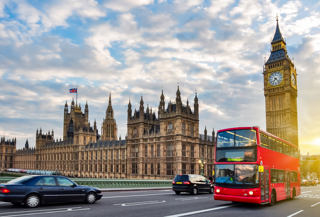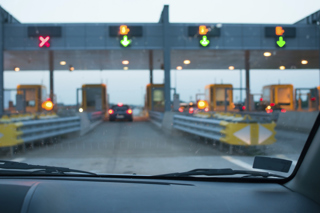Speakers view
Jay Parmar, BVRLA
Tax revenue from VED, fuel and VAT currently totals £37.82 billion, twice the UK’s transport budget, according to Jay Parmar.
However, he predicted that fuel consumption was expected to fall by 20% between 2011/12 and 2029/30 resulting in £13bn of lost revenue. “That is equivalent to a 3-4p rise on income tax,” he added.
Parmar segmented tax into four groups:
- Purchase tax: VAT and showroom tax
- Ownership tax: VED and BIK
- Usage tax: fuel duty, parking, tolls and congestion charges
- Business tax: capital allowance, lease rental restriction, VAT recovery
He claimed that operating two tax bands for capital allowance (95g/km and 130g/km) was an over-
simplification and also raised concerns about the loss of first-year allowances for leasing companies.
“Our members aren’t able to recover some of the allowances once they’ve sold the vehicle,” Parmar said. “Quite often some of the members have to continuously reclaim allowances up to 18-20 years.
“Should we substitute the first year allowance to a rental incentive so that if you do select a greener car you can reclaim a larger proportion of the expenditure for those vehicles?” he asked.
With the revenue from motorists in decline to the tune of £500m every year from fuel and company car tax, the Government will be looking for ways to fill the hole.
“One of the debates has been around road charging as an effective way of targeting congestion. Other taxes don’t influence: once you’ve got a full tank of fuel you’re king of the road, there’s nothing to influence you to worry about the time of day when you use the vehicle.”
Parmar also raised a concern over changes to the test cycles used to calculate CO2 emissions and whether the Chancellor would recalibrate the tax bands.
“If they don’t create two parallel systems, you will be punishing drivers that have selected a vehicle based on the current scheme,” he said.
“Because of the array of different motoring taxes, we certainly want a fairer, simpler taxation.”
James Boyd, PricewaterhouseCoopers
There are a number of factors that affect the demand for vehicles, according to James Boyd.
They included the economy which affected buyer confidence, interests which affected affordability and cost – which for fleets largely means the rental charge. This was particularly important when considering ultra-low emission vehicles (ULEVs).
“If we can reduce the rent for ULEVs, then I think we can increase demand,” Boyd said.
“How do we change the rent? Our view is that capital allowance is a good system that has affected rents to cars. The first year allowance (FYA) was an effective method of encouraging the use of ULEVs.
“But the question is, is the Government doing enough and is it doing things in the right way? The tax system has got to be understandable, it’s got to be simple, it’s got to be fair within reason. It’s got to be stable, there’s nothing that puts off investment more than a system that keeps changing, and it’s got to be affordable.”
Boyd described the removal of FYAs for leasing companies as the “fly in the ointment”.
He added: “That doesn’t seem fair that there is a different treatment between buying and leasing.
“We should bring back some form of first year allowance; maybe it’s not 100%, maybe some other number, but we should be working towards trying to bring it back into play.”
Jeff Whitcombe, BCF Wessex
The UK has already exceeded the European Union’s 130g/km target for average CO2 emissions, according to Jeff Whitcombe, and is “probably well on the way to getting to the 2020 target,” he said.
“There’s a lot of talk about company car tax increasing, but if you put it into context of the past 12 years that is entirely understandable,” he added.
“HMRC is trying to recoup the revenue for company car tax. If we go from 2002 when the current regime was brought in, maximum emissions, i.e. when you were taxed at 35%, were 265g/km. By 2018 that will be down to 180g/km, so it’s a huge drop.
“Pre-2002, the minimum tax charge on a company car was 15% and we think the Government’s focus is to get back to a minimum charge of 15%. If you look at what’s happening with the ultra-low emission cars, by the end of the next parliament the minimum tax charge for company cars is likely to be 15%.”




















Alastair Kendrick - 15/10/2014 16:55
There are some big issues that appear to need to be addressed. It is not so much a case of balancing books but determining a methodology for the future. The CO2 emission basis of taxation on benefits is now over 10 years old and is it time to think of a new solution. Do we tax based on private use - we have the technology to track this and this appears fairer and in line with other EU member countries In regard to mileage allowances this is not a subject which the Treasury will want to address in the short term. The evidence suggests there are around 1 million public sector workers who are required to use their car on business - the government is unlikely to want to fund the provision of company cars. Also whilst public sector rates may sound excessive the excess over AMAP is taxed so it is remuneration by the back door